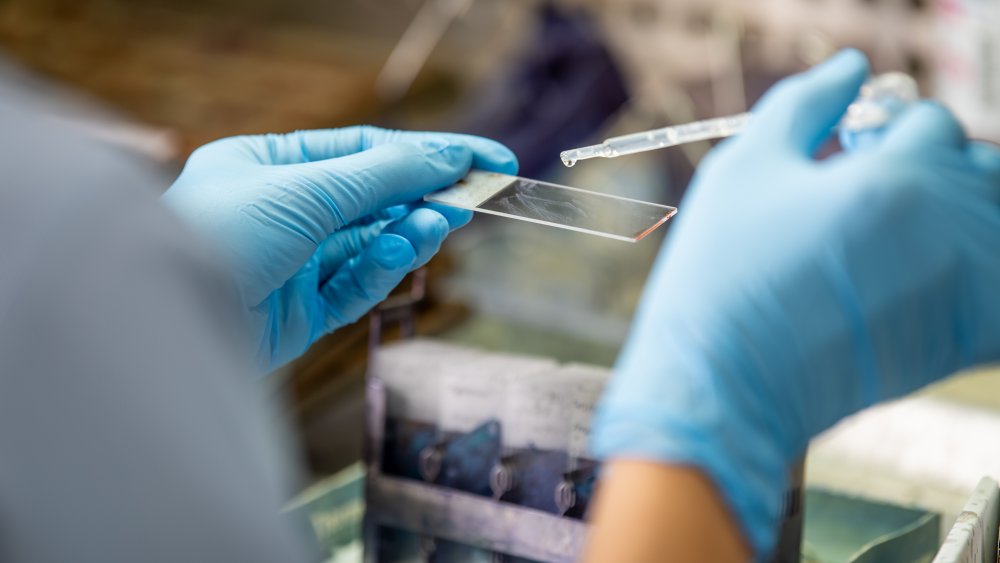Do You Really Need To Get A Pap Smear Every Year?
It's a part of that "well woman check-up" — or whatever your doctor calls it — that nobody really loves, but we come to expect it each year: legs in the stirrups, the feel of pressure and something cold, and the sight of your healthcare provider wielding a very long swab. This is the Pap smear, which checks for changes in the cervix that could indicate cervical cancer if not treated promptly, according to the Centers for Disease Control & Prevention. In case you ever wondered what was your doctor is collecting up there, it's a sample of the cervical tissues and mucous that will be sent to a lab. If all is fine, you likely won't hear a peep from your OB/GYN or primary care doctor for another year, when it's time to get you back in those stirrups again. However, not all doctors prescribe a Pap smear every year.
"Years ago, women had a Pap smear at each annual visit, but today Pap smears have improved and we know cervical cancer takes many years to develop," OB/GYN Margot Watson, M.D., told Johns Hopkins Medicine. Once you have one normal Pap under your belt, you may be told you only need this test once every three years, between the ages of 21 and 29, and after age 30, you can get a Pap every five years, until age 65, when you can stop taking this test, Watson added, as long as you haven't had any "seriously precancerous cells" over the prior 20 years paired with two normal Paps over the last 10 years. Of course, you will want to consult with your medical team on this specific timing, but these general recommendations apply to many people.
What to do if you have an abnormal Pap smear result
If you do get a call saying that your results are abnormal, don't panic. You may have had some abnormal cells, but that doesn't mean you have cervical cancer (via WebMD.) Further testing will determine if you have the human papillomavirus, or HPV, which is the cause of 91 percent of cervical cancer cases (per National Cervical Cancer Coalition).
But it doesn't transform from virus to cancer overnight. "It generates a lot of anxiety and concern, but the reality is there are a lot of abnormal Pap smears that are not cancer," Nicole S. Nevadunsky, M.D., associate professor in the division of gynecologic oncology at Montefiore Einstein Center for Cancer Care, told SELF. "The good news about all this is that if there are precancerous cells there, it does take them a very long time — years — to grow into cancerous cells. With good surveillance, we're able to prevent precancerous lesions from becoming invasive," she added.
If you do get an abnormal result, though, indeed you can count on being called in for annual Pap smears — no waiting every three to five years for you. According to the American Cancer Society, the majority of cervical cancer cases occur in women who never got a Pap smear, so as much as you might not like the stirrups-speculum-swab routine, this isn't an appointment you want to skip.


